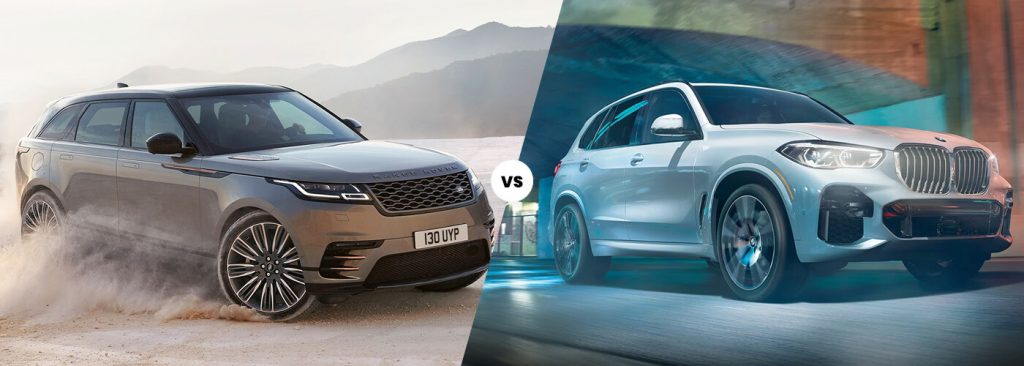

**Range Rover Variants Featuring BMW Engines: An Exploration of the Alliance Between Two Automotive Titans**
The Range Rover brand, a hallmark of British elegance and off-road capability, has been closely linked with Land Rover’s engineering legacy for many years. Nonetheless, what numerous fans might not be aware of is that a number of Range Rover variants have been powered by engines crafted by BMW, the distinguished German car manufacturer. This partnership originates from a significant era in Land Rover’s history and has profoundly influenced the performance and sophistication of specific Range Rover models.
### The BMW-Land Rover Relationship
The alliance between BMW and Land Rover can be traced back to the mid-1990s. In 1994, BMW took ownership of the Rover Group, which encompassed Land Rover. This acquisition enabled BMW to exchange technology and engineering expertise with Land Rover, resulting in the incorporation of BMW powertrains and parts into various Land Rover and Range Rover models.
Even though BMW divested Land Rover to Ford in 2000, the impact of the German manufacturer continued to resonate in Land Rover’s range for several years thereafter, especially regarding engines.
### Range Rover Variants with BMW Engines
#### 1. **Range Rover P38 (1994–2002)**
The second-generation Range Rover, referred to as the P38, was the first to gain from BMW’s ownership. While the P38 initially utilized the Rover V8 engine, BMW’s influence was apparent in other domains, such as technology and interior quality. Nevertheless, the most prominent BMW engine found in the P38 was the 2.5-liter inline-six turbo-diesel engine.
– **BMW Engine Utilized:** M51 2.5L I6 Turbo Diesel
– **Years Offered:** 1994–2002 (mainly in European regions)
– **Performance:** Roughly 134 hp and 199 lb-ft of torque
This engine garnered acclaim for its enhanced fuel efficiency and sophistication compared to earlier diesel alternatives, making it a favored option in regions where diesel engines were popular.
#### 2. **Range Rover L322 (2002–2012)**
The third-generation Range Rover, known as the L322, represented a significant advancement in luxury and technology. Initially developed during BMW’s stewardship, the L322 debuted in 2002 and incorporated several BMW-sourced engines in its early production years.
– **BMW Engines Utilized:**
– **M62 4.4L V8 Petrol Engine**
– **Years Offered:** 2002–2005
– **Performance:** Approximately 282 hp and 325 lb-ft of torque
– **M57 3.0L I6 Turbo Diesel Engine**
– **Years Offered:** 2002–2006
– **Performance:** Approximately 174–218 hp and up to 369 lb-ft of torque
These powerplants were coupled with BMW’s 5-speed automatic transmission and were recognized for their smooth operation and dependability. The M62 V8, especially, provided a refined driving experience that enhanced the Range Rover’s luxury image.
After 2005, Land Rover started to shift toward engines sourced from Jaguar following its acquisition by Ford. Nevertheless, the early L322 variants remain significant for their BMW foundations.
### Advantages of BMW Engines in Range Rovers
The integration of BMW engines introduced numerous benefits to the Range Rover lineup:
– **Enhanced Sophistication:** BMW’s engines were celebrated for their smooth functioning and quiet performance, elevating the luxury experience in Range Rover models.
– **Improved Fuel Economy:** In comparison to older Rover engines, BMW’s diesel and petrol alternatives delivered better fuel efficiency.
– **Increased Dependability:** BMW’s engineering benchmarks contributed to more reliable powertrains, particularly in the diesel models.
### Legacy and Enthusiast Interest
Presently, Range Rover models outfitted with BMW engines, especially the L322 with the M62 V8, are valued by enthusiasts for their fusion of British aesthetics and German engineering. These vehicles embody a distinctive chapter in Land Rover’s story and are frequently sought after for their performance and refinement.
### Conclusion
The partnership between BMW and Land Rover during the 1990s and early 2000s led to some of the most technically sophisticated and refined Range Rovers of that era. From the diesel-driven P38 to the opulent L322, BMW’s engines were instrumental in enhancing the Range Rover brand. Although the collaboration was relatively brief, its influence continues to be evident in the legacy of these legendary vehicles.
Whether you are a Range Rover aficionado or an admirer of BMW engineering, the models that resulted from this partnership serve as a testament to what can be accomplished when two automotive giants collaborate.






